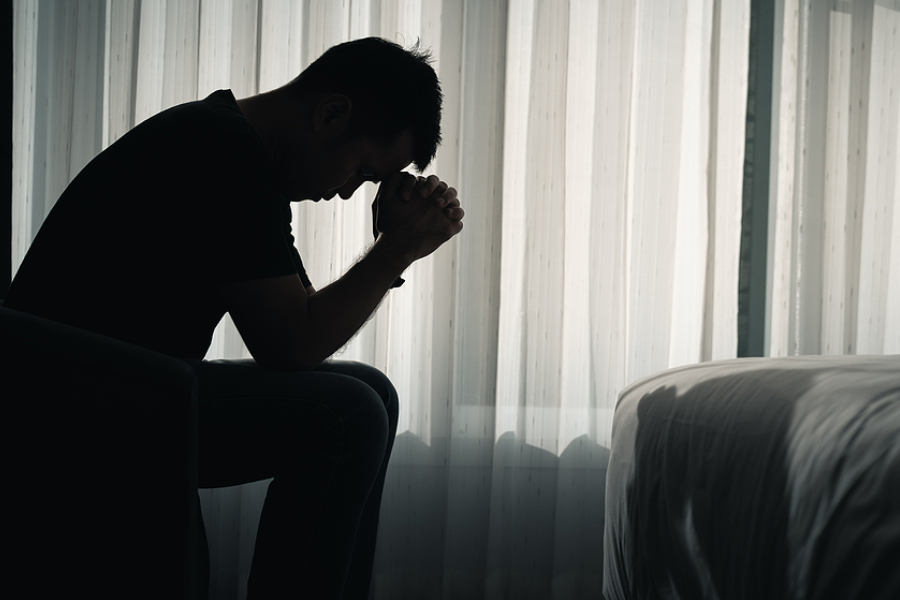While most people have been through a rough patch in their lives, a traumatic event is much more severe. Traumatic experiences are marked by a sense of helplessness, fear or threat. No matter if it is physical or emotional trauma, these experiences can leave an individual feeling deeply unsafe.
What is post-traumatic stress disorder?
Following a traumatic event, it is normal to experience some reactions such as feeling unbalanced, disconnected or suspicious of those around you. However, for most people, these feelings are often short-lived.
If these feelings do not fade over time, an individual might be suffering from post-traumatic stress disorder. Post-traumatic stress disorder, or PTSD for short, is an anxiety disorder that develops after a traumatic event. Instead of making progress each day, an individual with PTSD may start to feel worse.
Causes of PTSD
The events that cause PTSD vary from person to person. Some of these events are one-off unexpected events, while others may be expected and dreaded. For instance, emergency service personnel may be exposed to distressing and traumatic events regularly as part of their occupation.
Some examples of traumatic experiences that may cause an individual to develop PTSD include:
- Being involved in an accident
- Being a victim of physical or sexual assault
- Being a victim of emotional abuse
- Being bullied, harassed or ostracised
- Having witnessed another person getting hurt
- Losing a loved one in upsetting circumstances
- Being diagnosed with a life-threatening health condition
Symptoms of PTSD
An individual who suffers from PTSD often relives the traumatic event in the form of vivid flashbacks or nightmares. The memories may be re-experienced in any of the five senses and one might even experience body sensations associated with the traumatic event many years later. This could be in the form of trembling, sweating profusely and feeling nauseous. It is common for those suffering from PTSD to feel like the events are happening again and they may even experience intense fear when these memories play back in their minds.
Another symptom of PTSD is feeling on edge and constantly looking out for danger. An individual suffering from PTSD may find it challenging to relax and may have difficulty falling or staying asleep. Some may display irritability and aggressive behaviour such as being easily angry. Others may cope with the physical or emotional pain by avoiding reminders of the trauma. They would try not to talk or think about what has happened in the past and may appear emotionless. Those suffering from PTSD typically also demonstrate other symptoms of anxiety.
Despite the attempts to avoid them, symptoms of PTSD will usually strike unknowingly through triggers or even one’s dreams. Hence, it is crucial to seek professional help to overcome PTSD.
PTSD recovery
In extreme cases of PTSD, symptoms are so severe and persistent that they have a significant impact on an individual’s day-to-day life. Recovery from PTSD is a gradual process. Healing does not happen overnight and memories of the trauma may never disappear completely. However, one of the best ways to reclaim your sense of power is to seek help from a qualified professional trained in trauma therapy.
During a therapy session, a professional therapist would typically explore your thoughts about the trauma, work through and desensitise these feelings of fear and anxiety so that these dreadful memories no longer affect your day-to-day life. Some of the techniques that are especially effectively in treating PTSD include eye movement desensitisation and reprocessing (EMDR) and schema therapy.
Conclusion
If you are looking for a mental health professional who can help you address the problems PTSD has caused in your life, our experienced psychotherapist can aid you in your road to recovery.
Here at Emotional Wellness, we offer therapy and counselling services in Singapore. We adopt a range of counselling and psychotherapy techniques such as eye movement desensitisation and reprocessing (EMDR), schema therapy, gestalt therapy, cognitive behavioural therapy, visualisation and more to help free you from emotional distress and learn to gain better control of your emotions.
Schedule an appointment with us today and let us work together to conquer your anxiety through psychotherapy and reclaim your life.

